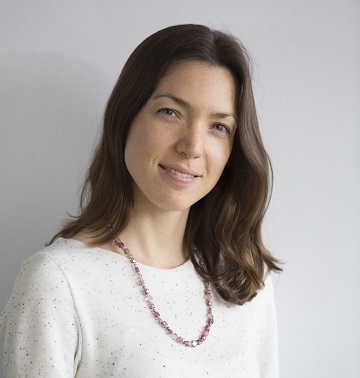 Any concerns about the future of the healthcare will be eased by an hour in the company of Dr Sam Shah. This modern-day polymath is brimming with qualifications and a determined belief that digital transformation will enhance the services and infrastructure that we are increasingly being told is struggling.
Any concerns about the future of the healthcare will be eased by an hour in the company of Dr Sam Shah. This modern-day polymath is brimming with qualifications and a determined belief that digital transformation will enhance the services and infrastructure that we are increasingly being told is struggling.
As a trained dental surgeon and public health specialist, with qualifications in law and digital health leadership – who speaks business Italian to boot – Sam brings a broad range of experience to the question of how the NHS and other health systems can best use technology. Until recently he worked as Director of Digital Development at NHSX (a unit driving digital transformation in health and social care) and continues to be committed to driving the digital transformation of the health service. Indeed, he sees there being “no choice but to use technology to help us.”
“All public health services around the world face the same problems and we can’t continue to do the same thing and expect to see a change,” he says. He believes part of the challenge is mindset: “We need to see technology as an adjunct to our work, helping us to provide more effective care. Technology is an enabler and its evolution has resulted in advancements, developments and changes that we wouldn’t otherwise have seen. If we view it that way – positively – in the health service, we can create the culture that enables technology to help us.”
Sam has long been entranced by the powers and possibility of technology; he was building and dismantling computers while at school. “I assumed everyone was using technology,” he says, “but now I realise I was probably quite into tech.” That said, his primary and unwavering focus was on becoming a clinician. “From about the age of six there was just nothing else for me. I couldn’t tell you why – I suppose it just looked interesting,” he explains.
While working with a GP in one of his first jobs, Sam was installing a network for the practice, introducing changes that improved the staff experience. “Back then, in the 90s, technology was very much a solution to the problems in the service. We had been drowning in all those paper records, spending time re-filing and typing up referral letters on a typewriter. Then suddenly there was a way to save all that time using technology. It was exciting.”
The challenge has changed today, he says, with technology no longer a relatively simple solution for the user but more of a top-down demand which can lead to ineffective application across the NHS. Sam advocates an approach that would see policy makers taking a step back and letting individual units implement the changes that work best for their systems.
He explains: “The NHS is more than 23,500 organisations, all with different needs and requirements, serving different patients and staffed by different specialists. They need their own technology solutions that work best for them, and not ones specified by policymakers.”
For all his belief in the power of technology as ‘the great enabler’, Sam still has a high respect for human interactions and is firm that patient-to-doctor contact will remain at the heart of the health service. “The time I spend with patients is so valuable to me, and I can see the difference it makes to them. I will always keep up my clinical work alongside my digital work as it keeps me real and it forces me to switch off from everything else. When I am with a patient, the only thing that matters is them.”
He is also aware of his own needs and strives to ensure his non-work time is a ‘digital detox’. “It’s important to carve out some quiet time and self-time by switching off the phone and disengaging from technology for a bit. It’s crucial for our human psychology I think,” he says. He admits that distracting himself from his work is easier because he has two daughters, aged 3 and 8. “We’re at the stage where the three-year-old wants to be on the trampoline at five am regardless of the weather,” he says. “That certainly stops you thinking about your day job.”
His girls will no doubt inspire him to continue working towards managing the technology infiltration in our lives, another area the polymath has ‘dabbled’ in. “I studied law a few years ago because I was interested in privacy and human rights,” he recalls. “I got involved in some big campaigns, and even took on some pro bono work. This area of digital transformation is really important – we must make tech work for us, and not lose ourselves within it.”
Standing up for the human in a world of technology will become ever-more important as the rate at which we implement digital solutions to our problems increases. With such drive and a wealth of experience and qualifications, Sam will surely be part of maintaining an equilibrium in the health service, ensuring technology enhances the human strengths of the NHS without destroying all that makes it beloved.


